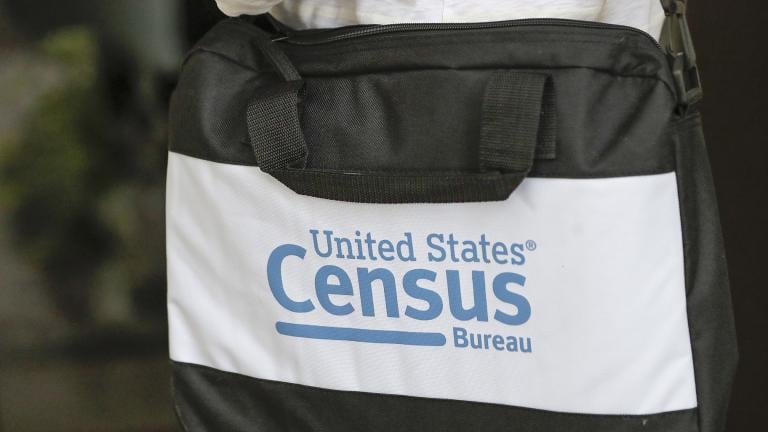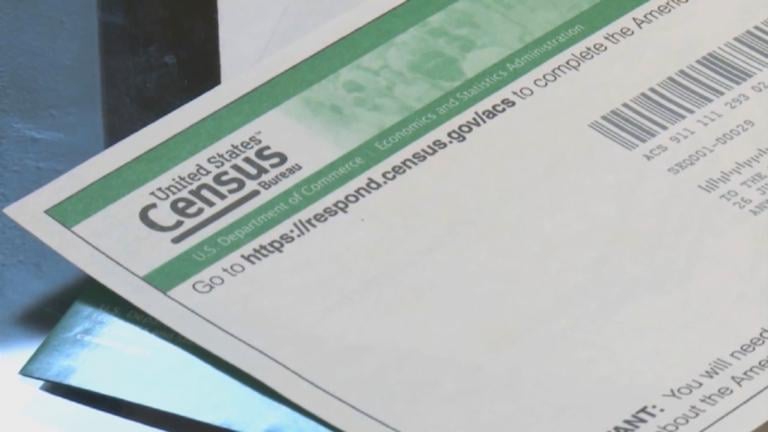The 2020 U.S. Census is just over a year away. Here are some things to know about the massive data collection effort that began in 1790 and has taken place every decade since.
Why is the census important?
When the Founding Fathers wrote the U.S. Constitution, they gave Congress the authority to carry out the census. It’s essentially a head count of all U.S. residents, and the information collected is used for many purposes.
For example, census data determines representation in Congress and how federal dollars are allocated to states. At the local level, the data is essential for infrastructure needs like roads and sewer lines, and other public services.
The census is “fundamental to our democracy and the basis of our political system,” says former U.S. Census Bureau senior researcher Peter Miller, a former Northwestern University professor.
How is census data collected?
In the past, a census enumerator was tasked with counting each person within a household. The process was updated years later with each household responding via questionnaires dropped off by a bureau representative, who would then pick up the responses. In 1970, forms were sent to each household and respondents mailed them back to the bureau. If there was a non-response, enumerators were sent to those homes to get an accurate count.
Plans for the 2020 census have not yet been finalized. However, the idea this time around is to send a letter to each household and direct respondents to a website. Each home would have a unique identifier to log onto the site and answer questions for the census. The bureau will offer a paper questionnaire to households without internet access or a reliable broadband connection. There will be subsequent follow-ups should a household not respond.
 (Stephen M. Scott / Flickr)
(Stephen M. Scott / Flickr)
When is census day?
The next census day is April 1, 2020. That’s when the process of gathering information will begin.
How long will it take to compile data from the 2020 census?
It used to take years to gather all the data from the census. Now, it’s a matter of months, according to Miller.
By law, the U.S. Census Bureau is required to deliver 2020 census questions to Congress two years before census day. Last March, the U.S. Census Bureau met with Congress to present questions. Planned questions for the 2020 census can be found here.
What’s the controversy over the 2020 census?
Last year, the Trump administration added a new question to the upcoming census: “Is this person a citizen of the United States?”
The Census Bureau says the question is necessary for protecting the voting rights of minority populations in the country, but some immigration advocates believe the question will discourage immigrant communities from participating in the census, and the question has provoked fear among immigrants that participation in the census could lead to deportation.
“We have a lot of immigrants and a lot of undocumented immigrants suspicious of government because of the messages that they’ve heard,” said Chicago demographer Rob Paral, a principal at Rob Paral and Associates, a consulting firm that helps philanthropic foundations and government agencies understand the communities they serve. “It makes it difficult to get an accurate count.”
A federal judge in New York last week ruled against adding the question to the 2020 census.
Commerce Secretary Wilbur Ross, who oversees the U.S. Census Bureau, is scheduled to meet with lawmakers in March to testify about his decision to add the citizenship question, according to reports.
Related stories:
Analysis Links Black Residents’ Exodus from Chicago with Unemployment
Census 2020: Illinois Joins Suit to Block Citizenship Question
2020 Census Citizenship Question ‘Politically Motivated,’ Say Officials








